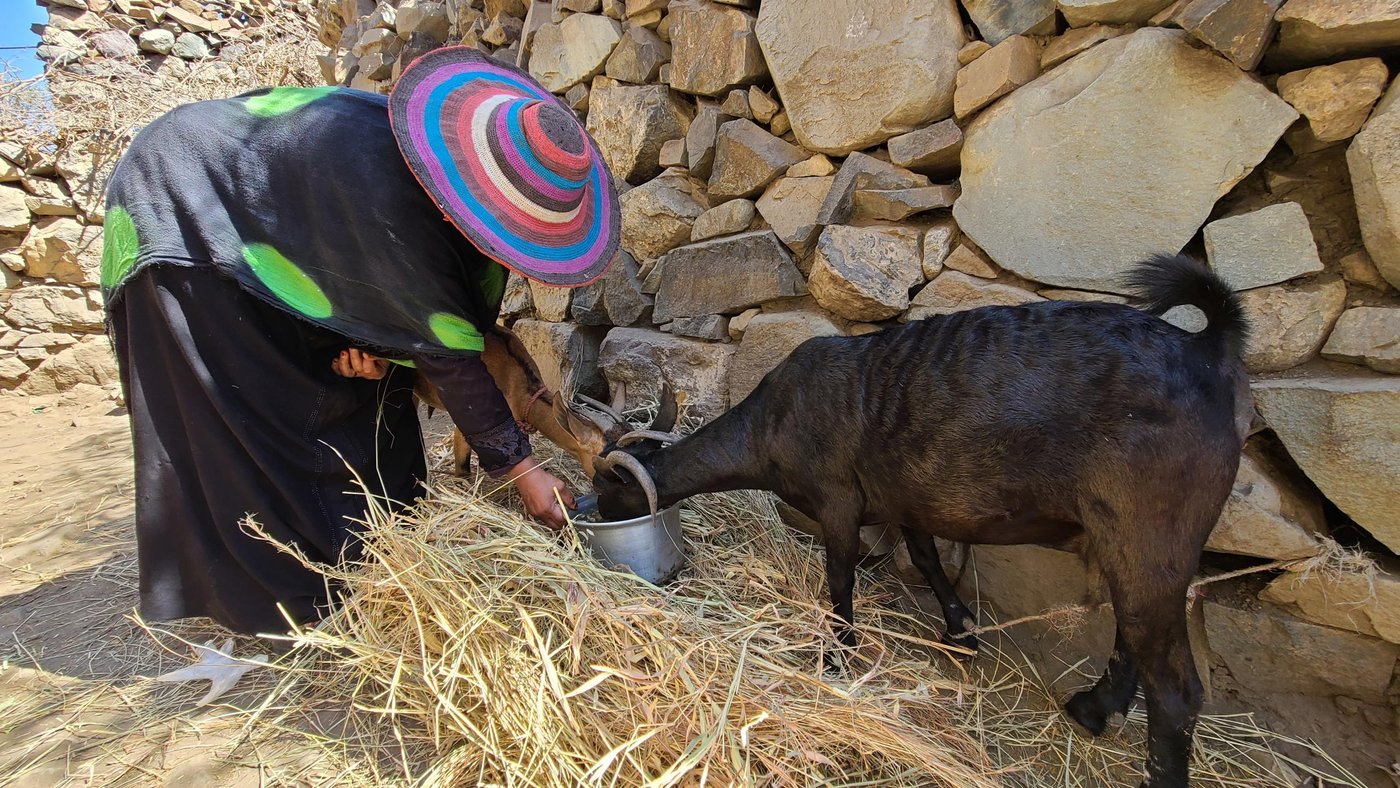Traditionally, a divorced woman in Yemen returns to live with her father, who pays for her and her children. However, this wasn’t possible for Khadijah.
“More than five years ago, my father was diagnosed with diabetes. He couldn’t work anymore because of his condition, so I had to find work to provide for my daughters and help them complete their studies,” she says.
Khadijah worked on farms as a casual labourer. She also helped women in her village gather firewood from the mountains. She usually earned between 500 and 1,000 Yemeni Rial (around USD 1) per day. Over the years, this hard, physical labour took a toll on her health.
“I have a problem with my spine,” she reveals. “I can no longer do any hard labour. I had to stop working and started relying on generous people and charitable organisations to help me survive.”
A difficult life
Khadijah used to live in her father’s house together with her brothers and their families. A year ago, she moved to a small, one-room house so that she and her daughters could live together as a family.

Before the war, people could help each other because food prices were low and men used to have jobs. But now things are worse.
“Life is difficult,” says Khadijah. “Sometimes we have enough food, but most times we only have one meal a day. No-one knows our suffering.”
“I struggle to provide my daughters with the things they need, especially clothes and school materials.”
From one meal a day to three
The Norwegian Refugee Council (NRC), with support from the UK government, started providing people in Khadijah’s village with cash assistance.
With her first cash transfer, Khadijah was able to buy enough food for at least two months. This also meant she and her family could have three meals a day instead of one.
“NRC helped us to meet our basic needs and reduced our suffering. I can see families in the village are now happy,” she says.
“If someone in the village is sick, we visit them and take juice and fruits with us.”
Raising goats
Khadijah believes that cash assistance is better than receiving food baskets because she can use the money freely to buy what she needs.
She hopes to develop a source of income to provide for her three children when the aid stops, so she has started to keep goats.
“I used some of the money I received from NRC to buy two goats. Raising goats may help me to provide for my family in the future,” she says.

“I haven’t witnessed many happy moments in my life. I’ve suffered a lot. But I work hard to make sure my daughters can have a better life,” says Khadijah.
Khadijah is not alone. The war in Yemen has taken a terrible toll. An estimated 80 per cent Yemen’s population – 24 million people – currently require humanitarian or protection assistance, including 14.3 million in acute need.
*The name has been changed to protect the interviewee’s identity.


